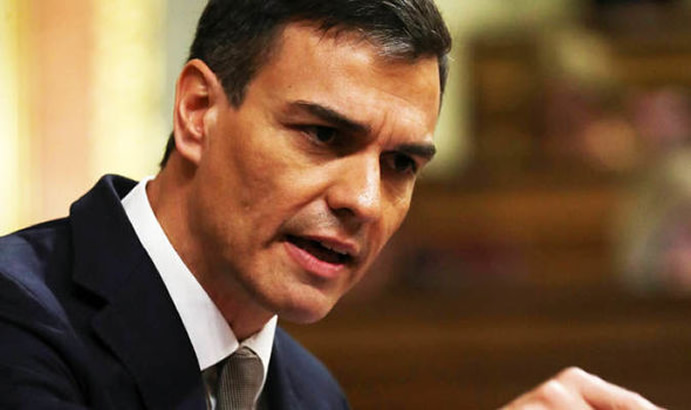The unfolding humanitarian crisis in Gaza has sparked international condemnation and spurred various nations to take action. Spanish Prime Minister Pedro Sánchez has emerged as a particularly vocal critic of Israel’s military operations in the region, denouncing the situation as a “genocide” and implementing a series of measures aimed at pressuring Israel and supporting the Palestinian population. These actions include an immediate arms embargo against Israel, a travel ban targeting individuals deemed directly responsible for the escalating violence, and a significant increase in humanitarian aid directed towards Gaza. Sánchez justified his strong stance by highlighting the dire circumstances faced by Palestinian civilians, asserting that the ongoing conflict transcends the realm of defense or attack and constitutes the systematic “extermination of a defenceless people.”
Sánchez’s decision to impose an arms embargo represents a significant diplomatic maneuver, signifying Spain’s disapproval of Israel’s military actions in Gaza. This move aims to restrict Israel’s access to weaponry and military equipment, thereby potentially limiting its capacity to conduct further operations. The accompanying travel ban targets individuals identified as being directly involved in the violence, holding them accountable for their actions and sending a strong message of condemnation. These measures are complemented by an increase in Spanish humanitarian aid to Gaza, demonstrating Spain’s commitment to alleviating the suffering of the Palestinian population caught in the crossfire.
Beyond immediate aid, Spain has pledged additional funding to the UN Relief and Works Agency for Palestine Refugees in the Near East (UNRWA), a critical organization providing essential services to Palestinian refugees. Furthermore, Sánchez announced a ban on the import of products originating from Israeli settlements, further escalating economic pressure on Israel. This multifaceted approach reflects Spain’s attempt to exert influence on the situation through both political and economic means, signaling its unwavering support for the Palestinian people and its condemnation of what it perceives as disproportionate force employed by Israel.
Central to Sánchez’s justification for these measures is his use of the term “genocide” to describe the situation in Gaza. He directly accuses Israel of perpetrating the “extermination of a defenceless people,” drawing attention to the immense human cost of the conflict. This accusation aligns with the definition of genocide put forth by the United Nations, which characterizes it as acts committed with the intent to destroy, in whole or in part, a national, ethnical, racial, or religious group. Sánchez’s forceful language reflects the gravity of the situation as he perceives it, emphasizing the urgency of international intervention and the need to hold those responsible for the violence accountable.
Sánchez’s pronouncements on the issue have also included sharp criticism of the international community, which he accuses of “indifference” and “complicity” in the face of the escalating crisis. This highlights the complex geopolitical landscape surrounding the conflict and underscores the challenges in achieving a peaceful resolution. Sánchez’s condemnation of international inaction serves as a call for greater global engagement and a more robust response to the humanitarian crisis unfolding in Gaza. His actions position Spain as a strong advocate for the Palestinian people and a vocal critic of what it views as excessive force employed by Israel.
The legal dimension of the conflict is further complicated by South Africa’s decision to file a lawsuit against Israel at the International Court of Justice in The Hague. This legal action accuses Israel of violating the Genocide Convention in the Gaza Strip, echoing Sánchez’s characterization of the situation. Israel, however, vehemently rejects the accusation of genocide and counters that the Hamas terrorist organization is responsible for the suffering of the civilian population, accusing Hamas of using civilians as human shields. This conflicting narrative underscores the deeply entrenched divisions and the complex interplay of factors contributing to the ongoing conflict, highlighting the challenge of establishing accountability and achieving a just resolution. The legal battle unfolding at the International Court of Justice adds another layer of complexity to the already volatile situation and further underscores the international community’s struggle to navigate the sensitive political and humanitarian dimensions of the conflict.














